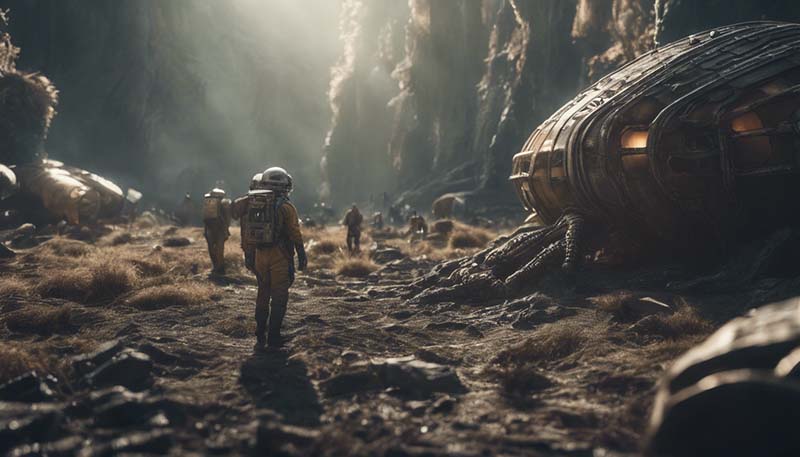The Risks of Colonization: A Deep Dive into the Challenges of Off-World Habitats
The Risks of Colonization: A Deep Dive into the Challenges of Off-World Habitats
Last updated: March 19, 2023
Introduction
As humanity looks to the stars and contemplates the possibility of colonizing other planets, the allure of new horizons is tempered by the daunting challenges that come with establishing off-world habitats. This deep dive aims to explore the risks and obstacles that must be overcome to ensure the success of such ambitious endeavors.
The Technological Hurdles
Creating sustainable habitats on other celestial bodies requires overcoming significant technological challenges:
- Life Support Systems: Developing closed-loop systems that can recycle air, water, and waste is crucial for long-term survival.
- Energy Production: Reliable and efficient energy sources, such as solar panels or nuclear reactors, are essential for powering habitats and supporting life.
- Food Production: Advanced hydroponics or other soil-less farming techniques will be necessary to grow food in off-world environments.
- Habitat Construction: Materials and methods for constructing habitats that can withstand extreme conditions are still under development.
The Psychological Impact
The psychological toll of living in isolated, confined environments for extended periods cannot be understated:
Advertisement
- Isolation: The distance from Earth can lead to feelings of loneliness and disconnection from loved ones.
- Confinement: Limited living spaces can result in increased stress and a lack of privacy.
- Mental Health: Prolonged stays in space can lead to anxiety, depression, and other mental health issues.
- Group Dynamics: Conflicts within small crews can escalate and affect the mission's success.
The Physical Hazards
Off-world habitats are not immune to the physical dangers present in space:
- Radiation Exposure: Protection from harmful cosmic and solar radiation is a significant concern for long-duration space travel.
- Microgravity Effects: Extended periods of weightlessness can lead to muscle atrophy and bone density loss.
- Temperature Extremes: Space habitats must be able to regulate temperature in the face of extreme heat or cold.
- Debris and Meteoroids: Collisions with space debris or meteoroids pose a threat to the integrity of habitats.
The Economic Considerations
The costs associated with colonization are substantial and must be carefully considered:
- Initial Investment: The development of the technology and infrastructure for colonization is expensive.
- Ongoing Operations: Maintaining off-world habitats requires a continuous flow of resources and funding.
- Return on Investment: The economic benefits of colonization, such as scientific discovery or resource extraction, must outweigh the costs.
- Ethical Spending: Allocating funds to space colonization may divert resources from pressing issues on Earth.
The Political and Legal Challenges
Colonization also raises a host of political and legal questions:
- Governance: Determining the governance structure of off-world habitats is a complex issue.
- International Cooperation: Space colonization efforts require collaboration between nations to succeed.
- Property Rights: Legal frameworks for property rights and resource ownership in space are still being developed.
- Treaty Compliance: Any colonization efforts must adhere to international space law, such as the Outer Space Treaty.
Conclusion
The prospect of establishing off-world habitats is both thrilling and daunting. While the potential rewards are immense, the risks and challenges are equally significant. As we continue to explore the cosmos, it is imperative that we approach colonization with caution, thorough planning, and a commitment to overcoming the many hurdles that lie ahead.

LEAVE A REPLY
Your email address will not be published. Required fields are marked *